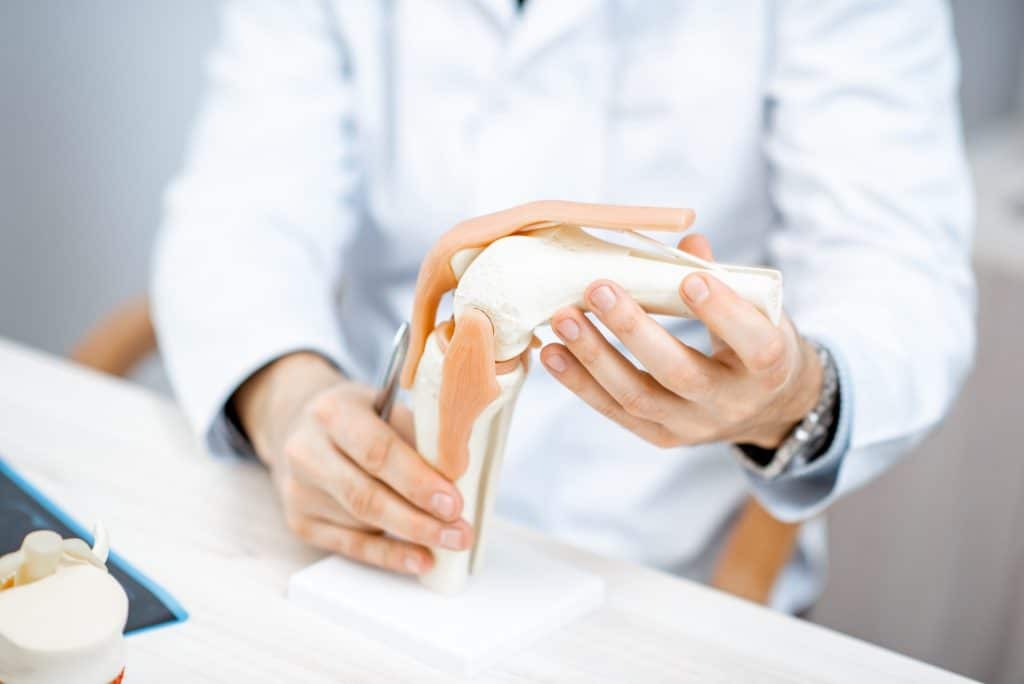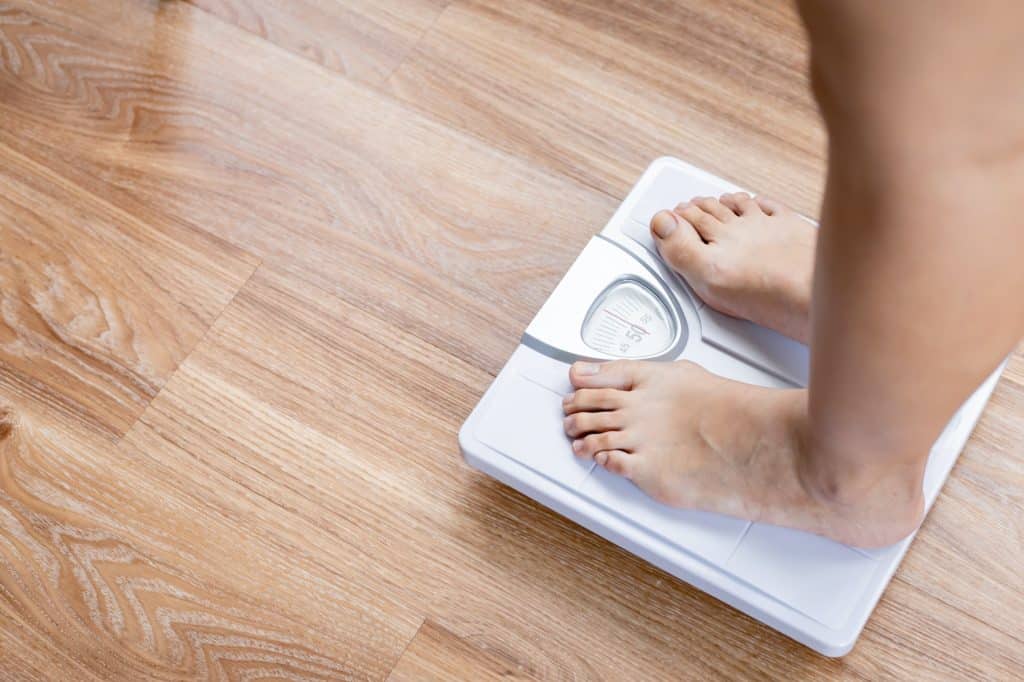Your joints play a pivotal role in your daily life, allowing you to move, bend, and easily perform countless activities. As you age or due to certain lifestyle choices, these crucial connectors can become compromised, leading to discomfort or even debilitating pain. With the rise of joint-related issues in today’s society, it’s essential to understand and take steps to improve your joint health. This article delves into the various ways you can nurture and protect your joints, ensuring a life of mobility and reduced pain.
Contents
- Understanding Joint Health
- The Role Of Diet In Joint Health
- Stay Hydrated
- Regular Exercise And Its Benefits
- Importance Of Maintaining A Healthy Weight
- Proper Posture And Ergonomics
- Use Of Supplements
- Avoiding Overuse And Injury
- Regular Check-Ups And Professional Advice
- Alternative Therapies
- The Mental Aspect: Stress And Joint Health
- Take Action To Keep Your Joints Healthy!
- Related
Understanding Joint Health

Joints are the connecting tissues between bones, facilitating movement and providing support. They come in various forms, such as ball-and-socket joints like the hip or hinge joints like the elbow. When functioning optimally, joints provide seamless movement without pain. However, factors like age, injury, or disease can compromise their health, leading to conditions like arthritis, bursitis, or tendinitis.
Understanding the intricacies of joint health is the first step toward proactive care. By recognizing early signs of joint issues, such as stiffness, swelling, or persistent pain, one can take timely measures. Addressing these symptoms early can prevent more severe complications and ensure a life of active mobility.
The Role Of Diet In Joint Health

Diet plays a significant role in maintaining joint health. Consuming a balanced diet rich in essential nutrients can prevent inflammation and provide the necessary building blocks for joint repair. Omega-3 fatty acids, found in fish like salmon and mackerel, have anti-inflammatory properties that can alleviate joint pain. Antioxidants, present in fruits like berries and vegetables like spinach, combat free radicals that can damage joints.
Moreover, calcium and vitamin D are vital for bone health, indirectly supporting joint function. Dairy products, fortified foods, and leafy greens are excellent sources of calcium, while sunlight exposure and fatty fish can provide vitamin D. Ensuring a regular intake of these nutrients can fortify joints and reduce the risk of related ailments.
Stay Hydrated

Water is a fundamental component of your body, with hydration playing a crucial role in joint health. The cartilage in your joints, which acts as a cushion and reduces friction, is majorly composed of water. When dehydrated, this cartilage can become less effective, leading to increased joint stress and pain.
To maintain optimal joint function, it’s imperative to stay hydrated. Experts recommend drinking at least eight glasses of water daily, though individual needs may vary based on factors like activity level and climate. Incorporating hydrating foods like cucumbers, watermelon, and oranges can also contribute to overall hydration, ensuring that your joints remain lubricated and function efficiently.
Regular Exercise And Its Benefits

Exercise is another cornerstone of joint health. Engaging in regular physical activity strengthens the muscles surrounding the joints, providing them with better support. This not only enhances joint function but also reduces the risk of injuries. Low-impact exercises, such as swimming, cycling, or walking, are particularly beneficial as they offer the dual advantage of strengthening muscles without exerting excessive pressure on the joints.
Strength training, when done correctly, can also be immensely beneficial. By building muscle mass, one can ensure that joints are adequately supported, reducing the chances of wear and tear. It’s essential, however, to ensure proper form and technique during strength training to avoid undue stress on the joints. Consulting with fitness professionals can provide guidance on exercises tailored to individual needs and capabilities.
Importance Of Maintaining A Healthy Weight

Carrying excess weight can exert undue stress on your joints, especially those in the lower body, like the knees and hips. Every additional pound of body weight translates to nearly four pounds of extra pressure on the knees. Over time, this increased load can accelerate the wear and tear of joint cartilage, leading to conditions like osteoarthritis.
Achieving and maintaining a healthy weight is paramount for joint health. Weight loss, even in small increments, can significantly reduce joint stress. For instance, losing just 10 pounds can alleviate 40 pounds of pressure on the knees. Adopting a balanced diet and regular exercise regimen can aid in weight management, ensuring that your joints remain healthy and functional for years to come.
Proper Posture And Ergonomics

Your posture, whether standing, sitting, or even sleeping, can also profoundly impact your joint health. Slouching or maintaining incorrect postures can strain muscles and put extra pressure on the joints. Over time, poor posture can lead to misalignment, causing joint pain and increasing the risk of degenerative conditions.
In today’s digital age, where many spend hours at desks or in front of screens, ergonomics becomes crucial. An ergonomic workspace ensures that one’s posture remains neutral, reducing the strain on joints. This includes having a chair that supports the natural curve of the spine, a desk at the right height, and a computer screen at eye level. Regular breaks to stretch and adjust posture can further mitigate the risks associated with prolonged sitting.
Use Of Supplements

In recent years, dietary supplements have gained popularity as a means to support joint health. Glucosamine and chondroitin, for instance, are commonly used to alleviate joint pain and improve function. These compounds are naturally found in the body and play a role in the formation and repair of cartilage.
However, it’s essential to approach supplements with caution. While many people report benefits, scientific evidence on their efficacy remains mixed. Moreover, supplements can interact with medications or have side effects. Before incorporating any supplement into one’s routine, consulting with a healthcare professional is crucial. They can provide guidance on the right supplements, dosages, and any potential risks.
Avoiding Overuse And Injury

Repetitive motions or overexertion can strain the joints, leading to conditions like tendinitis or stress fractures. Activities that involve constant joint use, such as running on hard surfaces or repetitive lifting, can accelerate joint wear if not done with care. It’s essential to recognize the signs of overuse, which may include persistent pain, swelling, or decreased joint mobility.
To protect joints from overuse and injury, it’s crucial to mix up one’s exercise routine, incorporating rest days and varying activities. Proper techniques, especially in sports or weightlifting, can also prevent undue joint stress. For those involved in specific sports or activities, seeking guidance on proper form and techniques can be invaluable. Additionally, wearing protective gear and using supportive footwear can further reduce the risk of joint injuries.
Regular Check-Ups And Professional Advice

Regular medical check-ups are crucial for preserving the health of your joints. They offer an opportunity to detect early signs of joint issues, allowing for timely interventions. Regular screenings can identify conditions like osteoporosis, which affects bone density and indirectly impacts joint health. Early detection often translates to more effective treatments and better outcomes.
Beyond general medical check-ups, consulting with specialists like physiotherapists or orthopedic doctors can provide tailored advice. These professionals can offer guidance on exercises, therapies, and interventions specific to individual joint concerns. Their expertise can be invaluable in both preventive care and addressing existing joint issues, ensuring optimal joint function and longevity.
Alternative Therapies

In the realm of joint health, alternative therapies have garnered attention for their potential benefits. Acupuncture, for instance, has been practiced for centuries and is believed to alleviate joint pain by stimulating specific points on the body. Similarly, massage therapy can enhance blood flow, reduce muscle tension, and improve joint mobility, offering relief to those with joint discomfort.
Another notable alternative therapy is hydrotherapy. Immersing oneself in warm water can reduce the gravitational pull on the joints, allowing for pain-free movement. The warmth also soothes sore muscles and joints, promoting relaxation and healing. While these therapies can offer relief, it’s essential to consult with healthcare professionals before trying them ensuring they’re suitable for individual needs and conditions.
The Mental Aspect: Stress And Joint Health

The connection between mental well-being and physical health is undeniable. Chronic stress can trigger inflammation in the body, exacerbating joint pain and related conditions. Moreover, persistent pain can lead to mental health challenges, creating a vicious cycle of physical discomfort and emotional distress.
To break this cycle, mindfulness practices like meditation can be beneficial. Meditation not only reduces stress but also enhances pain tolerance, offering dual benefits for joint health. Additionally, practices like yoga combine physical movement with mindfulness, promoting both joint flexibility and mental well-being. Embracing such holistic approaches can significantly improve overall joint health, highlighting the interconnectedness of the mind and body.
Take Action To Keep Your Joints Healthy!
Joint health is a multifaceted aspect of your overall well-being, influenced by physical, nutritional, and mental factors. By adopting a holistic approach, encompassing a balanced diet, regular exercise, preventive care, and mental well-being practices, you can ensure your joints remain functional and pain-free. As the connectors that facilitate your every move, your joints deserve the utmost care and attention. By prioritizing their health today, you pave the way for a future of unhindered mobility and a life free from debilitating pain!


